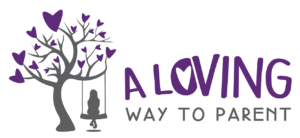Any guesses on which is more important … verbal or non-verbal communication? Here is a clue: 55% of communication is body language, 38% is tone and 7% is words. Wow!
Do you ever wonder why your kids shut down when you speak to them or ask questions? Often times it is our tone. You may not be thinking you have a tone, but if your child hears one, they will react accordingly. If you are angry when you speak, even if it’s about something completely unrelated, chances are your tone will have an angry edge. Your child will hear that and may take it personally.
In communication, the responsibility for getting the message across belongs to the sender, not the receiver. That being said, if you want your child to receive a specific message, it is important to understand how they hear you.
Most of us have had conversations with friends over the phone when we can tell something is not quite right. We hear the words, “I’m fine,” but we know they are not. How? Because we pick up on the tone. Your kids do that as well.
Communicating with your children about tone and body language opens up your relationship and creates bonding. It can also be fun! If you let them give you feedback on your tone, chances are they will welcome your feedback on theirs. It’s a partnership.
Here are a couple of examples to play with:
Parent: “Sarah, please clean up your room and put your dirty clothes in the laundry basket.”
Sarah: “Why are you yelling at me?”
Parent: “I’m not yelling at you. Just clean up your room.”
Your child may or may not clean her room at that point, but more importantly she will “believe” you yelled at her “for no reason” and will move forward with silent hurt feelings. Those feelings fester and communication breaks down each and every time that happens (unbeknownst to you). Suddenly, you have a teenager with attitude who does not talk to you.
Alternatively, you could do this:
Parent: “Sarah, please clean up your room and put your dirty clothes in the laundry basket.”
Sarah: “Why are you yelling at me?”
Parent: “I wasn’t meaning to yell. Did I say that loudly or harshly? What makes it sound like yelling to you?” (come from genuine curiosity)
This is just the beginning of the conversation. You have opened the way for communication. Walk through that door! This is where you learn about your kids and they learn about you. It’s a huge life lesson in compassion, empathy, listening, kindness, patience and so much more. The point is not in cleaning the room. The point is in having effective conversations and learning to listen and understand the other person. You can both win! This process empowers your child.
Be willing to listen to your child’s feedback, even if you disagree. Take the time to teach them how to do so respectfully. Play with it. This does take time and energy on the front end, but know that the return on investment is enormous. Would you rather your child let you know today about the emotional distance they are feeling, or 15 or 20 years from now?
You won’t be perfect; that’s not the goal. You want to be flexible. You want to learn to clarify and ask questions. Don’t assume your child is disrespectful when they have a tone. Find out WHY they “sound” angry or frustrated or short. THAT is how you build a relationship. Care about them and their day. This teaches them to care about you and yours.
It would be my pleasure to expand on this if you would like further information. Simply contact me for a complimentary 15-minute phone consultation. You may also receive our free weekly newsletter at www.alovingway.com.
Traci L. Williams is the Founder of A Loving Way to Parent where she provides parenting classes, groups and coaching. She is known for her practical parenting style and can be reached directly at 951-240-1407 or traci@alovingway.com.

